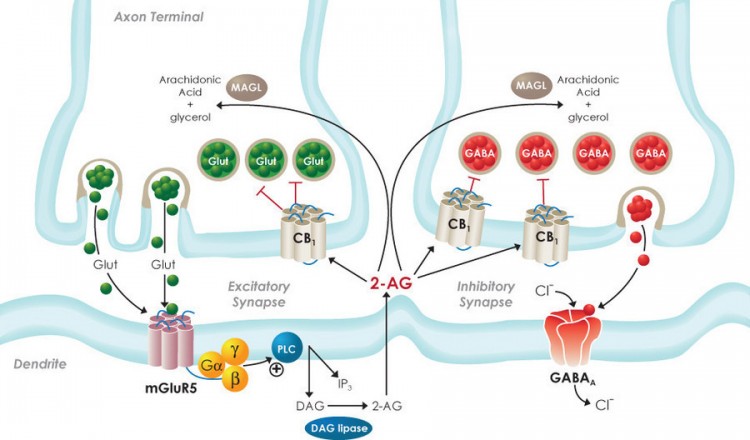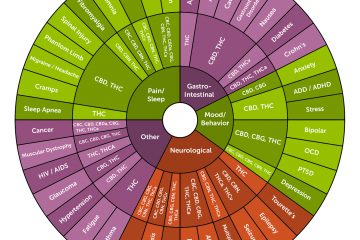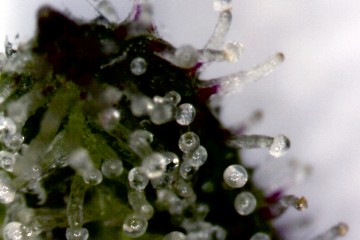What is Cannabinoid Deficiency?

Are you suffering from a cannabinoid deficiency? Gooey Rabinsky explains:
Based on the scant knowledge available regarding the endocannabinoid system and cannabinoid science overall, some researchers have theorized that many diseases, like multiple sclerosis, may be caused by a simple deficiency of endogenous (internally produced) cannabinoids (also called endocannabinoids). This condition has been labeled Clinical Endocannabinoid Deficiency, or CECD (it is also sometimes called Endocannabinoid Deficiency Syndrome).
Researchers understand that the body’s endocannabinoid system maintains homeostasis, meaning that it controls and regulates pain, appetite, sleep, inflammation, and cell metabolism (including the lifecycle of cells). Thus, a lack of cannabinoids could cause disruption to multiple systems in the body. It is theorized that this disruption, or lack of homeostasis, then leads to more significant and life-threatening problems.
Are patients who gain relief from their symptoms from cannabis simply supplementing a deficiency in their endocannabinoid system with cannabinoids from marijuana? Can cannabinoids from marijuana be thought of as simply supplements — or even, in extreme cases, replacements — for human endocannabinoids?
Several notable researchers have proposed that an endocannabinoid deficiency may be responsible for ailments like migraines, multiple sclerosis, and Crohn’s disease.
According to Dr. Ethan Russo, the Senior Medical Advisor at GW Pharmaceuticals, the British company that manufactures Sativex, a synthetic form of THC,
“Deficient cannabinoid levels may be the underlying cause of numerous conditions alleviated by cannabis.”
Can Cannabinoids Slow Aging?
Some experts go even further. Dr. Robert Melamede, former Chairman of the Biology Department at the University of Colorado, believes cannabinoids may even slow the aging process.
Most researchers acknowledge the role of free radicals in the aging process. Free radicals can quickly multiply and become unmanageable without antioxidants to help flush them from the body. An abundance of free radicals in the body can also result in inflammation, amplifying other health problems that are commonly associated with aging.
Melamede believes that cannabinoids may go beyond helping patients with MS or cancer. He believes they play a role in preventing and regulating all age-related illnesses.
For example, cannabinoids, like cannabidiol (CBD) and cannabichromene (CBC), are known to relieve inflammation while other cannabinoids like tetrahydrocannabinol (THC) and cannabinol (CBN) are known to act as antioxidants. These are two important contributors in the road to homeostasis and overall health.
With relatively little known about cannabinoids and their interaction with the human body, this new research is pointing toward a future in which cannabinoid therapy — whether derived from the whole plant or via single-cannabinoid extracts — may be an effective treatment for a much wider range of diseases than originally believed.
“Nobody Dies from Getting Old”
According to Melamede,
“Nobody dies from getting old. People die from age-related illnesses.”
The medical establishment deals with many age-related illnesses, like cancer and cardiovascular disease, on a response basis. In other words, a person has a heart attack and doctors and nurses attempt to save his or her life — after most of the damage has been done. However, cannabinoid therapy may change this reactionary model to one of prevention.
The application of cannabinoid therapy may be used to reduce inflammation and free radicals, thus improving or eliminating dozens of age-related conditions that otherwise would wreak their havoc, after which doctors and medical techs simply clean up the mess and try to keep the patient alive.
In the coming decades, such an approach may seem as primitive as the application of leeches.
Author: Gooey Rabinski
Source: Whaxy.com





No Comment